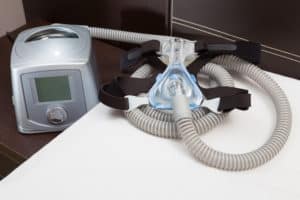CPAP Safety with COVID-19

Does Sleep Apnea Make Me More Susceptible to Coronavirus?
There is no direct connection between having sleep apnea and having a higher risk of contracting the novel coronavirus. The high-risk groups, however, do include people who developed sleep apnea because of the conditions or whose conditions are exacerbated by sleep apnea. These groups include smokers, people with heart disease, people with high blood pressure, and people with breathing disorders such as COPD and asthma.
If I Get COVID-19, Can My CPAP Help Me Breathe?
It is imperative that if you believe you have COVID-19 that you call your physician or local hospital. CPAP machines are not capable of replacing a ventilator and may, in fact, keep you from realizing how serious your condition is until it is too late. Using your CPAP when you have coronavirus may also make it more likely that people around you get sick, since the CPAP machine spreads droplets of moisture. Do not use your CPAP machine to treat breathing problems resulting from COVID-19.
What Do I Do If I’m Not Comfortable Using My CPAP Right Now?
There are other alternatives to the CPAP machine to help you treat your sleep apnea. At eos dental sleep in Philadelphia, oral appliance therapy (OAT) is a proven alternative CPAP treatment option for patients with mild to moderate sleep apnea, and those patients with severe obstructive sleep apnea (OSA) who are unable to tolerate CPAP machines. While continuous positive airway pressure (CPAP) therapy is generally the first line of treatment for sleep apnea, many patients prefer an oral appliance as a CPAP alternative.
If you have mild to moderate sleep apnea, or if you have severe obstructive sleep apnea but cannot tolerate or are not comfortable continuing to wear a CPAP mask, oral appliance therapy may be the most effective treatment available. If you are interested in learning more about oral appliance therapy for sleep apnea in Philadelphia, schedule an appointment today.
